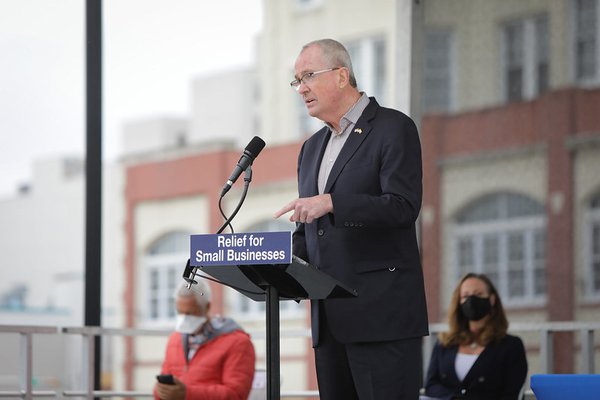Residential and overnight youth summer camps have been cleared to resume in New Jersey for the first time amid the COVID-19 pandemic.
Summer day camps will also be allowed to take place again this year, as long as a number of COVID-19 health and safety protocols are followed, state officials said this week.
- MORE NEWS
- Undocumented people can now sign up for drivers licenses in NJ
- $1.75 million winning lottery ticket sold at Northeast Philly Lukoil
- Masks, social distancing will still be necessary at summer camps, CDC says
Staff, campers and volunteers must be screened daily for COVID-19 symptoms. Face masks must be worn indoors. Groups should be cohorted and social distancing should be practiced.
Frequent cleaning and disinfecting of surfaces, as well as proper hand hygiene, should be implemented. Camps must also install protocols for when a staff member or camper tests positive for COVID-19.
Off-site camp activities such as field trips will also be permitted to resume this summer.
For overnight camps, unvaccinated staffers and campers must register a negative COVID-19 test result within 72 hours of arriving on-site. All staff and campers will be required to receive a COVID-19 test within 3-6 days of arrival. Staff members and campers are strongly encouraged to self-quarantine prior to arrival.
A full list of New Jersey's COVID-19 health and safety guidelines for summer camps can be found on the state's website. The guidance "ensures that we will have the proper safeguards in place for a rewarding summer camp experience," Gov. Phil Murphy said.
"As cases of COVID-19 and hospitalizations continue to decline, coupled with millions of New Jerseyans rolling up their sleeves to be vaccinated, we are able to move forward with reopening programs across our state,” Murphy said. “We are committed to a safe and fun summer for our kids."
Summer day camps were permitted to take place last summer amid the public health crisis as long as COVID-19 health and safety measures could be followed. But sleepaway camps were prohibited.
Staffers had to wear face coverings at all times, unless it impacted their health or they worked outside in the extreme heat. Campers were required to wear one indoors or if social distancing could not be practiced outdoors, unless they were under the age of 2 or had a specific medical condition.
Camp groups and staff members were asked to practice social distancing as much as possible. Children and staff had to remain in the same groups everyday, and campers could not intermingle with others outside of their assigned cohort.
Staffers and campers were screened daily for COVID-19 symptoms. Off-site activities such as field trips, and contact sports or group competitions, were banned.
Follow Pat & PhillyVoice on Twitter: @Pat_Ralph | @thePhillyVoice
Like us on Facebook: PhillyVoice
Add Pat's RSS feed to your feed reader
Have a news tip? Let us know.

